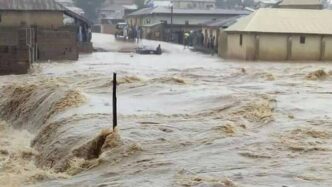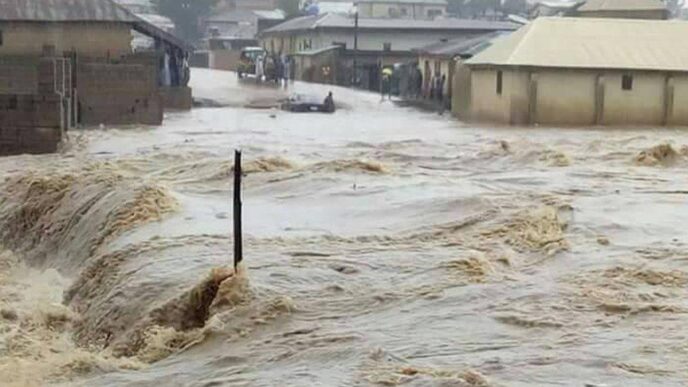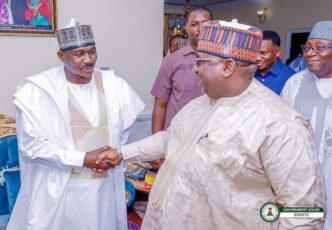Minister of Power, Adebayo Adelabu, has announced that Nigeria is working towards securing a $190 million renewable energy loan, supported by the Japan International Cooperation Agency (JICA).
Gatekeepers News reports that the announcement was made during the 9th Tokyo International Conference on African Development (TICAD 9) in Yokohama, Japan, where Adelabu joined President Bola Tinubu and other members of Nigeria’s delegation in high-level engagements on power, infrastructure, and industrial transformation.
According to the Minister of Power, the facility will expand distributed renewable energy projects in underserved areas.
He said, “This builds on the recently launched $750 million World Bank Distributed Access through Renewable Energy Scale-up (DARES) programme under the Mission 300 Compact, which aims to bring clean and reliable electricity to more than 17 million Nigerians.”
Adelabu also held talks with leading Japanese firms, including Toshiba, Hitachi, Japan’s transmission and distribution corporation, and energy exchange corporations.
These discussions focused on improving transmission infrastructure, operational efficiency, and reducing system losses.
He said, “These engagements built on the recent Federal Executive Council approvals for counterpart funding of N19,083,192,805.30 to catalyse a loan funding of $238 million from the Japan International Cooperation Agency (JICA).”
“This loan funding will support the expansion of the national grid with the addition of 102.95km of new 330kV double circuit (DC) line, 104.59km of new 132kV double circuit (DC) line, four 330/132/33kV substations, two 132/33kv substations, two 330kV line bays extension, two 132kV line bays extension, and one 132kV Substation.”
The minister further revealed that three substations funded through a $32 million JICA grant are nearing commissioning in Apo (FCT), Keffi (Nasarawa), and Apapa (Lagos).
These projects are expected to boost supply reliability to homes, businesses, and industrial clusters, including the Lagos Port.
Speaking during a panel session titled “HICKARE Africa: Harnessing Innovation, Co-creation, and Knowledge for Accessible and Resilient Energy for Africa,” Adelabu highlighted Nigeria’s energy gap.
The minister noted that only 55–60 percent of the country’s population has access to electricity, much of which is unreliable.
He added, “We are expanding grid access in urban areas while accelerating off-grid solutions such as solar mini-grids and standalone systems for rural and peri-urban communities.”
The minister also identified persistent barriers, including limited access to affordable capital, high energy costs for rural households, and under-utilisation of productive-use equipment.
He further reaffirmed government commitment to reforms, saying “ We are addressing these issues through supportive policies, private-sector partnerships, and local manufacturing of renewable energy components.”
Adelabu praised Japan’s role in Nigeria’s power sector, describing JICA’s contributions as invaluable.
He commended their long-standing support through infrastructure projects, technical studies, training, and renewable energy financing, while expressing optimism for deeper collaboration between both governments.










